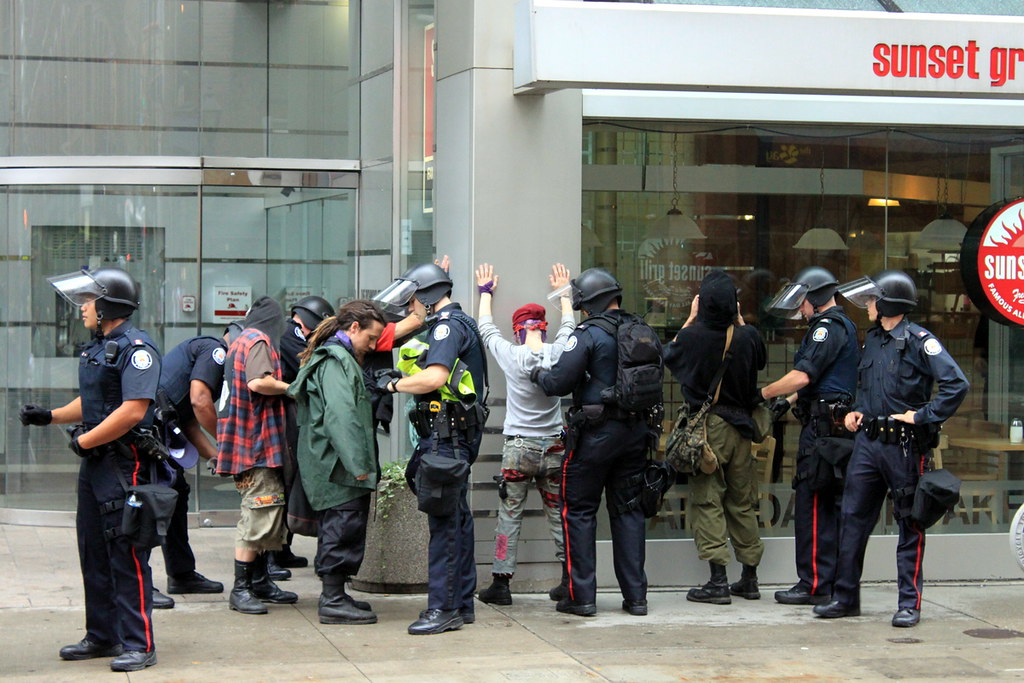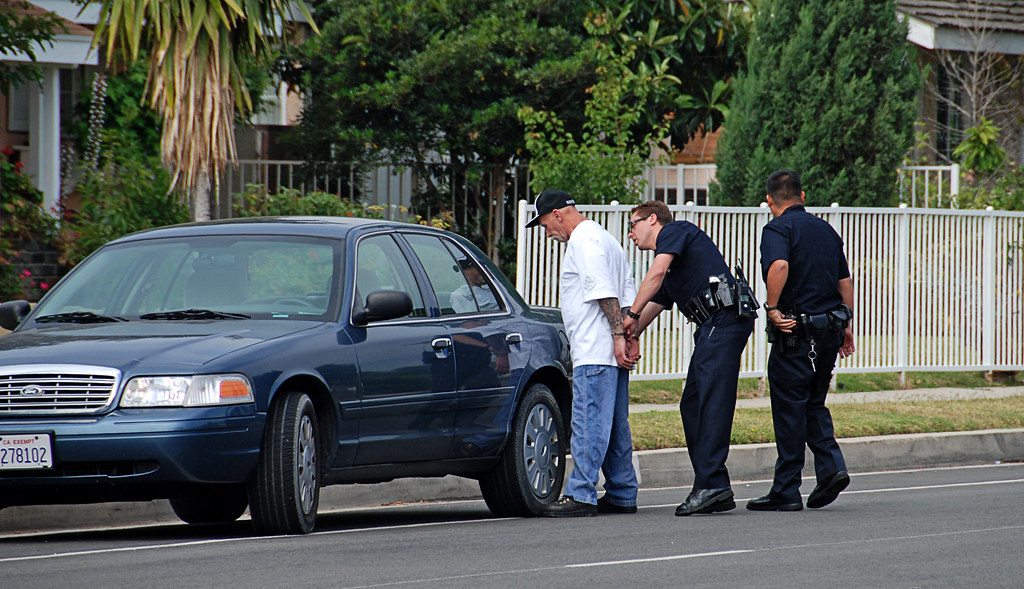Navigating the 4th Amendment: Exceptions to Search and Seizure Laws
The Fourth Amendment to the United States Constitution protects citizens from illegal search and seizure by requiring a search warrant, issued by a neutral and detached magistrate. There are exceptions, including in Georgia. These exceptions are what allow police to search persons, papers, vehicles, and homes without consent, depending on the circumstances.
In Georgia, some of the key exceptions include:
- Consent: If an individual voluntarily gives consent for a search, law enforcement may proceed without a warrant. It is crucial to remember that consent must be freely and voluntarily given, without coercion or duress.
- Plain View: If law enforcement officers observe illegal items or evidence in plain view while lawfully present, they can seize that evidence without a warrant. This exception typically applies when the officer has a right to be in the location where the evidence is discovered.
- Exigent Circumstances: In emergency situations where there is an immediate threat to public safety or the potential destruction of evidence, law enforcement may conduct a search or seizure without a warrant. Examples of exigent circumstances may include hot pursuit of a suspect or the risk of imminent harm.
- Incident to Arrest: When an individual is lawfully arrested, law enforcement officers have the authority to search the person and the immediate surrounding area to ensure officer safety and prevent the destruction of evidence.
If a search takes place during a lawful arrest, the police officer is allowed to search the person and the area around the person. The officer may take weapons and contraband into custody as evidence. If the arrest is later deemed illegal, then the search is also deemed illegal.

When a police officer sees items in plain view, legally there was no intentional search. However, the police officer must have legal grounds to be where the search and/or seizure happens and the items must be illegal. For example, if an officer stops a vehicle for a valid reason and sees drug contraband on the front seat, the officer has the right to conduct a search of the vehicle occupants and the vehicle.
An emergency situation might mean that the police officer doesn’t have time to get a search warrant, such as when there is a threat of violence, evidence is being destroyed, or if the police are in pursuit of a suspect.
Since many law enforcement officers are equipped with “dash cams” or body cams, the question and answer regarding consent to search may be able to be heard. This can often provide conclusive proof of whether or not consent was freely given.
If you feel you have been wrongly arrested, or that law enforcement searched and/or seized your property during an illegal search, contact a criminal attorney for a consultation.
Understanding the requirement for a warrant
A warrant is a legal document issued by a judge, authorizing law enforcement officers to perform a specific search or seizure. To obtain a warrant, officers must present probable cause to the judge, meaning they must have enough evidence to reasonably believe that a crime has been committed and that the search or seizure will provide evidence of that crime.
The requirement for a warrant is an essential protection for individuals’ privacy rights. It ensures that searches and seizures are not arbitrary or based on mere suspicion. By requiring law enforcement to obtain a warrant, the Fourth Amendment establishes a system of checks and balances, allowing judicial oversight to prevent abuses of power.
Exceptions to the warrant requirement
While the Fourth Amendment of the U.S. Constitution protects individuals against unreasonable searches and seizures, there are certain exceptions to the warrant requirement that have sparked controversy and debate among legal scholars and citizens alike.
One notable exception is the “exigent circumstances” exception. Under this exception, law enforcement officers may conduct a search or seizure without a warrant if there is an immediate threat to public safety or the potential for the destruction of evidence. This exception is often invoked in cases involving emergency situations, such as the pursuit of a fleeing suspect or the prevention of imminent harm.

Another exception is the “plain view” doctrine. According to this doctrine, if an officer is lawfully present in a location and comes across evidence or contraband that is clearly visible, they may seize it without a warrant. This exception applies when the officer has a lawful right to be in the area and the incriminating nature of the evidence is immediately apparent.
The “consent” exception is another frequently debated exception to the warrant requirement. If an individual voluntarily gives consent to a search, law enforcement officers are not required to obtain a warrant. However, the consent must be given freely and without coercion or duress.
Plain View Doctrine
Under the plain view doctrine, an officer must be lawfully present in a location where the evidence is located. This means that the officer must have a lawful right to be in that particular area, such as with the consent of the property owner or based on a valid search warrant for a different purpose.
Once lawfully present, the officer can seize any evidence that is in plain view without the need for a warrant. This applies to objects that are readily visible to the officer from their vantage point without any need for further search or manipulation. For example, if an officer is conducting a lawful traffic stop and notices drugs or a weapon on the car’s dashboard, they can seize those items without obtaining a warrant.
However, it is important to note that the plain view doctrine has certain limitations. The officer must have a lawful right to be in the location where the evidence is located, and the incriminating nature of the evidence must be immediately apparent. This means that if an officer observes an item but is unsure whether it is connected to criminal activity, they cannot seize it under the plain view doctrine alone. In such cases, they would need to obtain a warrant or establish another exception to the warrant requirement.
Exigent circumstances
Exigent circumstances refer to situations where there is an urgent need for immediate action, and obtaining a warrant would be impractical or would likely result in the loss of evidence or the endangerment of individuals. In such cases, law enforcement officers may be allowed to conduct a search or seizure without a warrant.

Examples of exigent circumstances may include cases where there is a risk of imminent harm to someone’s life or safety, such as when there is a suspected hostage situation or a potential threat of violence. It could also include situations involving the destruction of evidence, such as the flushing of drugs down a toilet or the disposal of contraband.
However, it is important to note that the determination of exigent circumstances is subjective and must be evaluated on a case-by-case basis. Courts will consider factors such as the immediacy of the threat, the seriousness of the offense, and the likelihood of the evidence being destroyed.
It is also worth mentioning that law enforcement officers must still have probable cause to believe that a crime has been committed or is in progress in order to justify a search or seizure without a warrant, even in exigent circumstances. This serves as a safeguard against potential abuse of this exception.
Stop and frisk
One of the most well-known exceptions to the warrant requirement under the Fourth Amendment is the concept of “stop and frisk.” This exception allows law enforcement officers to briefly stop and pat down individuals if they have reasonable suspicion that the person may be armed and dangerous.
In Georgia, the stop-and-frisk exception follows the guidelines established by the Supreme Court in the landmark case of Terry v. Ohio. According to this ruling, an officer must have reasonable suspicion, based on specific and articulable facts, that criminal activity is taking place or that the person being stopped is armed and poses a threat. It is important to note that reasonable suspicion is a lower standard than probable cause, which is required for a full search warrant.

The purpose of the stop-and-frisk exception is to ensure the safety of both the officer and the public. It allows officers to take swift action in potentially dangerous situations without the delay of obtaining a warrant. However, it is crucial that officers do not exceed the scope of a pat-down search. They are only permitted to search for weapons that they reasonably believe could be used to harm them or others.
It is also worth mentioning that the stop-and-frisk exception is subject to scrutiny and must meet constitutional standards. If it is determined that an officer’s actions went beyond what is allowed under this exception, any evidence obtained as a result of an unlawful search may be deemed inadmissible in court.
Searching a Vehicle Without a Warrant
While the Fourth Amendment protects individuals from unreasonable searches and seizures, there are certain circumstances in which law enforcement can search a vehicle without obtaining a warrant.
Automobile exception.
Under this exception, if an officer has probable cause to believe that a vehicle contains evidence of a crime, they can search it without a warrant. This exception stems from the understanding that vehicles are highly mobile and can easily be moved or hidden, allowing for the potential destruction of evidence if a warrant were required.

It’s important to note that the probable cause requirement still applies, meaning that the officer must have specific facts and circumstances that would lead a reasonable person to believe that evidence of a crime is present in the vehicle. This requirement acts as a safeguard to prevent arbitrary and baseless searches.
Consent exception.
If a person voluntarily gives consent for law enforcement to search their vehicle, a warrant is not necessary. However, it’s crucial to understand that consent must be given freely and willingly. Coercion, duress, or any form of intimidation would invalidate the consent and render the search unconstitutional.
Inventory search exception
The “inventory search exception” allows law enforcement to search a vehicle without a warrant after it has been lawfully impounded. The purpose of this exception is to protect the vehicle owner’s property and ensure that no valuables are lost or stolen while the vehicle is in custody.
Search Incident to Arrest Doctrine
This exception allows law enforcement officers to conduct a search without a warrant when they have lawfully arrested an individual. The rationale behind this exception is to ensure officer safety and the preservation of evidence.
When a person is lawfully arrested, the arresting officer has the authority to search the individual and the immediate area within their control. This can include the person’s clothing, bags, or containers they are carrying at the time of the arrest. The purpose of this search is to safeguard the officer from any potential weapons or harmful objects that the arrested person may possess, as well as to prevent the destruction of evidence.

The scope of the search incident to arrest is limited to the person and the immediate area within their control. It does not extend to a full-scale search of the individual’s residence or vehicle unless there are additional circumstances that justify such a search. The search must also be conducted at the time of the arrest or shortly thereafter, as the rationale for this exception is closely tied to the immediate circumstances surrounding the arrest.
In Georgia, courts have generally upheld the search incident to arrest exception, recognizing its importance in ensuring officer safety and the preservation of evidence. However, it is crucial for law enforcement officers to adhere to the limitations and requirements of this exception to avoid any violations of an individual’s Fourth Amendment rights.
Controversial cases involving search and seizure without a warrant
Controversial cases involving search and seizure without a warrant have long been a topic of intense debate and scrutiny within the legal realm. These cases delve into the delicate balance between individual privacy rights and law enforcement’s duty to uphold public safety.
One such case that sparked significant controversy is the landmark decision in Riley v. California (2014). In this case, the Supreme Court ruled that the police must obtain a warrant before searching a suspect’s cellphone, even during an arrest. This decision recognized the vast amount of personal information stored on modern smartphones and emphasized the need for heightened privacy protection.
Another highly contentious case is Carpenter v. United States (2018). This case questioned whether law enforcement agencies should be required to obtain a warrant before accessing an individual’s historical cell phone location data. The Supreme Court ultimately held that obtaining such data without a warrant violated the Fourth Amendment’s protection against unreasonable searches and seizures.
One notable case that has had repercussions on search and seizure laws is the landmark ruling in Georgia v. Randolph (2006). This case addressed the issue of consent during a search when multiple occupants are present. The Supreme Court held that if one occupant gives consent to search, but another expressly refuses, the consent is not valid. This decision clarified the importance of individual consent in search and seizure situations, emphasizing the protection of individual privacy rights.
The case of Collins v. Virginia (2018) had a significant impact on search and seizure laws in Georgia and beyond. The Supreme Court ruled that the Fourth Amendment’s “automobile exception” does not extend to searches of vehicles parked on private property, such as in a driveway or curtilage. This decision reinforced the principle that individuals have a reasonable expectation of privacy in their homes and surrounding areas, even when it comes to their vehicles.
Balancing individual rights and law enforcement needs
Balancing individual rights and law enforcement needs has long been a topic of debate and controversy when it comes to search and seizure without a warrant. On one hand, there is a pressing need for law enforcement agencies to swiftly and effectively investigate and prevent crimes. On the other hand, individuals have the fundamental right to privacy and protection from unreasonable searches and seizures.
The Fourth Amendment of the United States Constitution provides protection against unreasonable searches and seizures. It states that “the right of the people to be secure in their persons, houses, papers, and effects, against unreasonable searches and seizures, shall not be violated, and no Warrants shall issue, but upon probable cause, supported by Oath or affirmation, and particularly describing the place to be searched and the persons or things to be seized.”
However, there are certain circumstances where law enforcement may argue that a warrantless search and seizure is justified. These circumstances often involve situations where there is an imminent threat to public safety or when evidence is at risk of being destroyed. For example, in cases of suspected terrorism or drug trafficking, law enforcement may argue that the urgency of the situation overrides the need for a warrant.
Critics of warrantless search and seizure argue that it undermines the fundamental principles of privacy and due process. They argue that the Fourth Amendment was specifically designed to protect individuals from arbitrary intrusion by the government and that any exceptions to the warrant requirement should be narrow and carefully defined.
Proponents of warrantless search and seizure, on the other hand, argue that it is necessary for law enforcement to act swiftly and decisively in certain situations. They contend that requiring a warrant in every circumstance could hinder investigations and potentially allow criminals to escape justice.
Conclusion
We hope this comprehensive guide to understanding exceptions to search and seizure laws in Georgia has provided you with valuable insights. Navigating the Fourth Amendment can be complex and daunting, but with the knowledge gained from this article, you are better equipped to understand your rights and responsibilities in encounters with law enforcement. Remember, knowledge is power, and being aware of the exceptions to search and seizure laws can safeguard your privacy and protect your constitutional rights. Stay informed and stay empowered.




